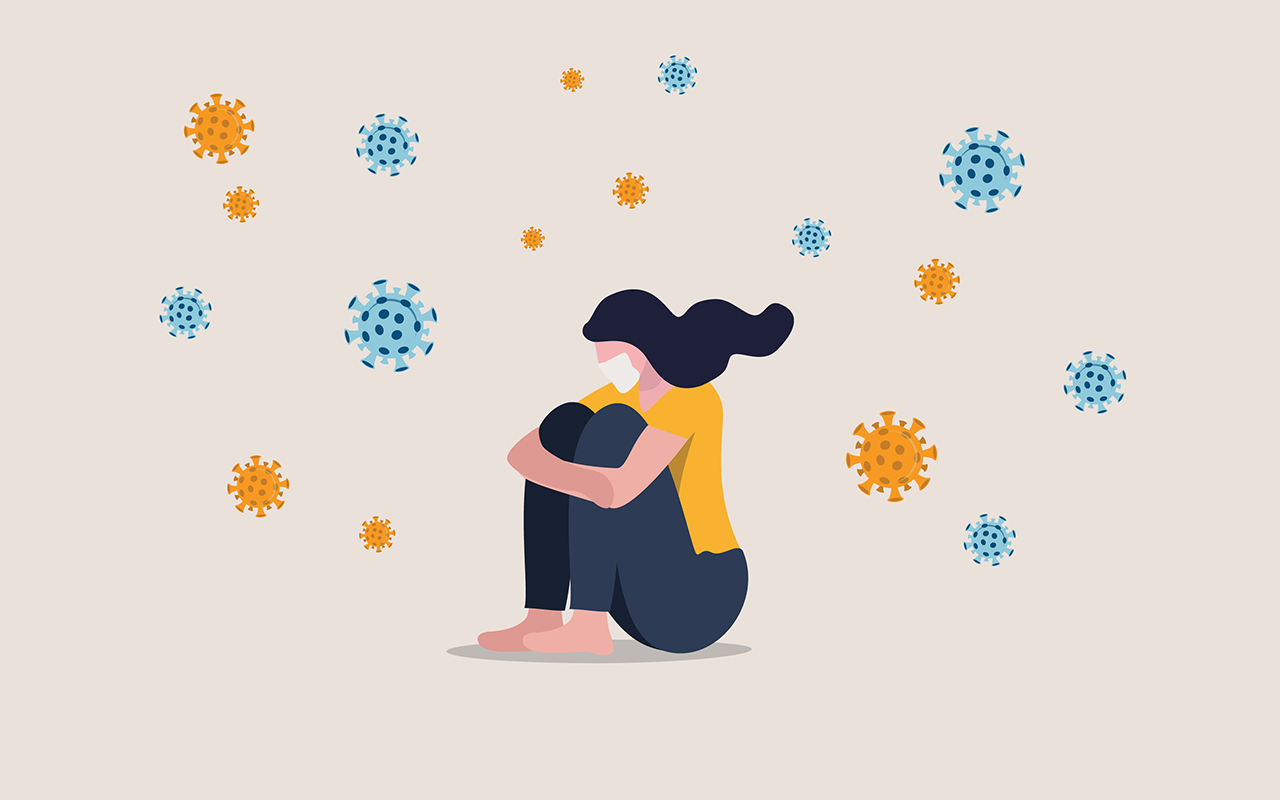EARLY interventions with clinical and public health strategies to mitigate the negative impacts of the COVID-19 pandemic and similar disasters on the mental health of Australian adults are needed, according to experts.
Writing in the MJA, researchers from the Australian National University in Canberra, led by Professor Philip Batterham from the Centre for Mental Health Research, set out to estimate initial levels of symptoms of depression and anxiety and their changes during the early months of the COVID-19 pandemic in Australia.
Batterham and colleagues administered seven fortnightly only surveys to 1296 Australian adults from the beginning of the COVID-19-related restrictions in late March 2020 to mid-June 2020.
“Younger age, being female, greater COVID-19-related work and social impairment, COVID-19-related financial distress, having a neurological or mental illness diagnosis, and recent adversity were each significantly associated with higher baseline depression and anxiety scores,” they reported.
“In contrast, few factors were statistically associated with changes in symptoms of depression or anxiety over the seven surveys: degree of direct exposure to COVID-19 was associated with less marked decline of symptoms of depression; being able to work from home and being female were associated with greater declines in symptoms of anxiety.”
The researchers identified three distinct trajectories for symptoms of depression:
- low level symptoms throughout the study: 1053 of 1296 participants (81.3%);
- moderate symptoms throughout the study: 127 participants (9.8%); and
- initially severe symptoms, then declining: 116 participants (9.0%).
They also identified four distinct trajectories for symptoms of anxiety:
- low level symptoms throughout the study: 998 of 1296 (77.0%);
- initially moderate symptoms, then increasing: 129 participants (10%);
- initially moderate symptoms, then declining: 68 participants (5.2%); and
- initially mild symptoms, then increasing for four surveys, then declining: 101 participants (7.8%).
“We found that mean levels of symptoms of depression and anxiety early in the COVID-19 pandemic were higher than estimated by earlier Australian population-based surveys, but most adults in our study did not experience changes in mental health symptoms during the first three months of the pandemic,” Batterham and colleagues wrote.
“[Our results] suggest that distress during the pandemic was transient for most people, and unlikely to lead to increased incidence of depression or anxiety disorders, consistent with previous research on public health disasters.
“Nevertheless, economic and social changes can have a delayed impact on mental health.
“Direct contact with COVID-19 had no significant effect on symptom levels, although greater COVID-19-related work and social impairment was associated with higher [scores] at baseline, as was COVID-19-related financial distress.”
Batterham and colleagues concluded that:
“Our findings indicate the importance of the need for greater support and practical strategies for mitigating these risks, as recognising and responding to distress early may alter harmful trajectories.
“Population-based primary and secondary prevention strategies to clinically and socially support vulnerable groups, including increased online and telephone mental health support, should be priorities for health and community services and governments during the COVID-19 pandemic and future crises.”
Also online first at the MJA
Perspective: The impact of practice size and ownership on general practice care in Australia
de Moel-Mandel and Sundararajan; doi: 10.5694/mja2.51038 … FREE ACCESS for 1 week.
Podcast: Dr Caroline de Moel-Mandel is a Lecturer in Public Health at La Trobe University. She discusses the impact of practice size and ownership model on the quality of general practice care in Australia … FREE ACCESS permanently.
Research letter: Repeat testing for SARS‐CoV‐2: persistence of viral RNA is common, and clearance is slower in older people
Stehlik et al; doi: 10.5694/mja2.51036 … FREE ACCESS permanently.

 more_vert
more_vert
This is interesting but I have a number of patients who are mourning the death of relatives, and the mourning is complicated by covid. This is exacerbated by their not being able to go to the funeral. One elderly woman lost both her sisters from covid in nursing homes – 1 in the USA and 1 in Melbourne – and was able to attend the funerals via ipad but this was really difficult for her and she needed help and felt it wasn’t the same. Another younger man lost both his parents – one in Germany and one in the UK – and was unable to attend either funeral because of covid.
so perhaps the covid related mental health effects are more widespread than this survey shows.